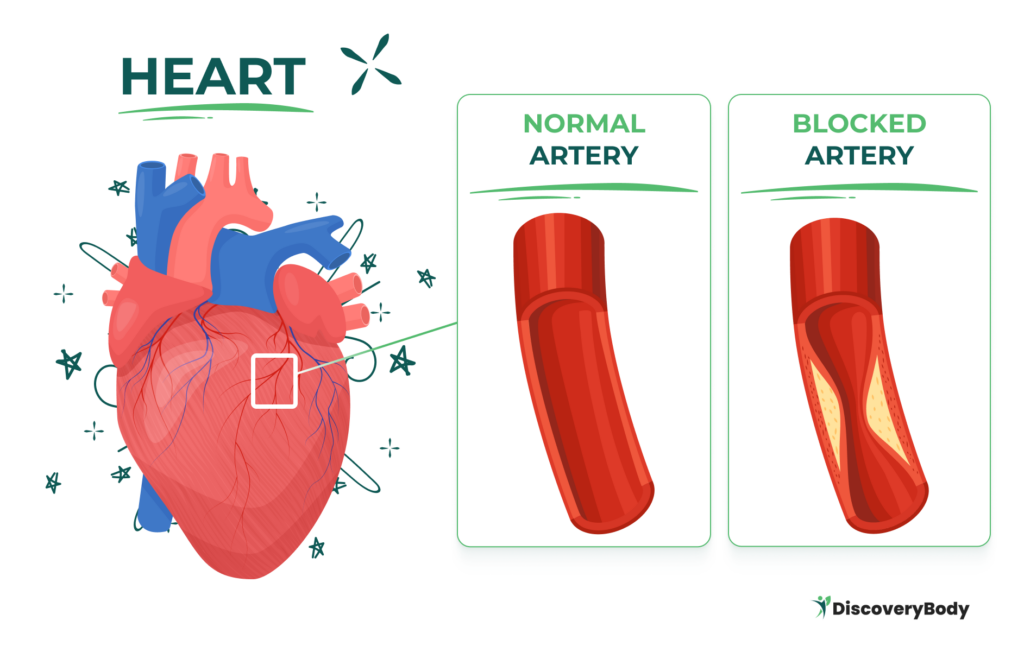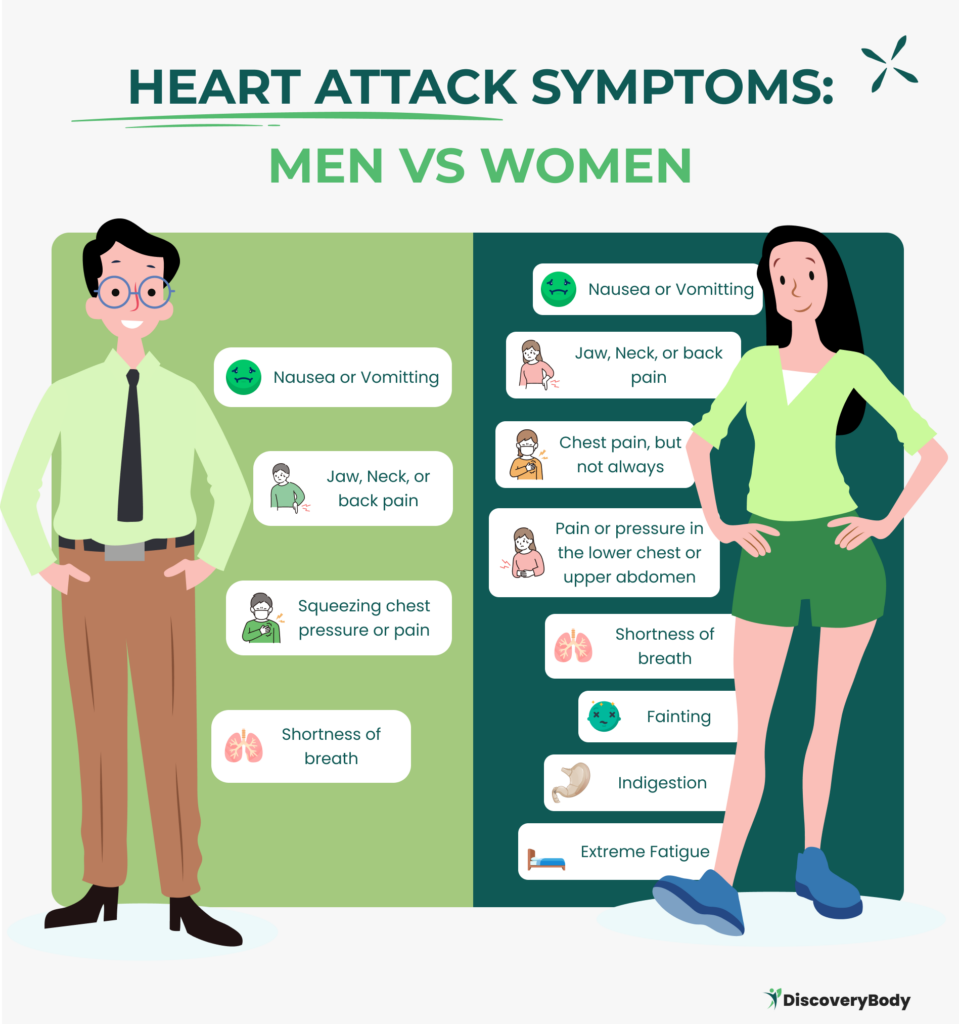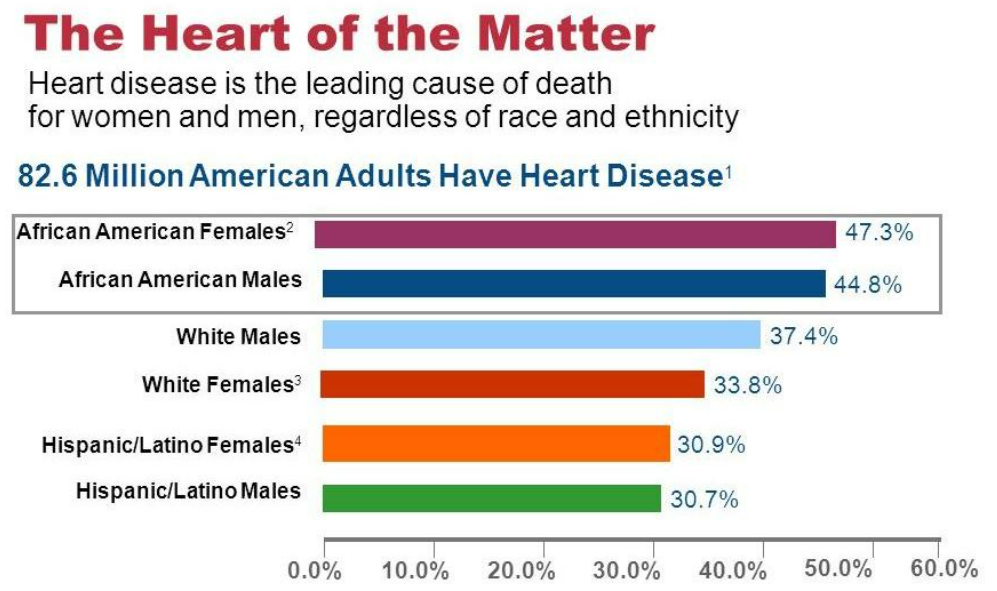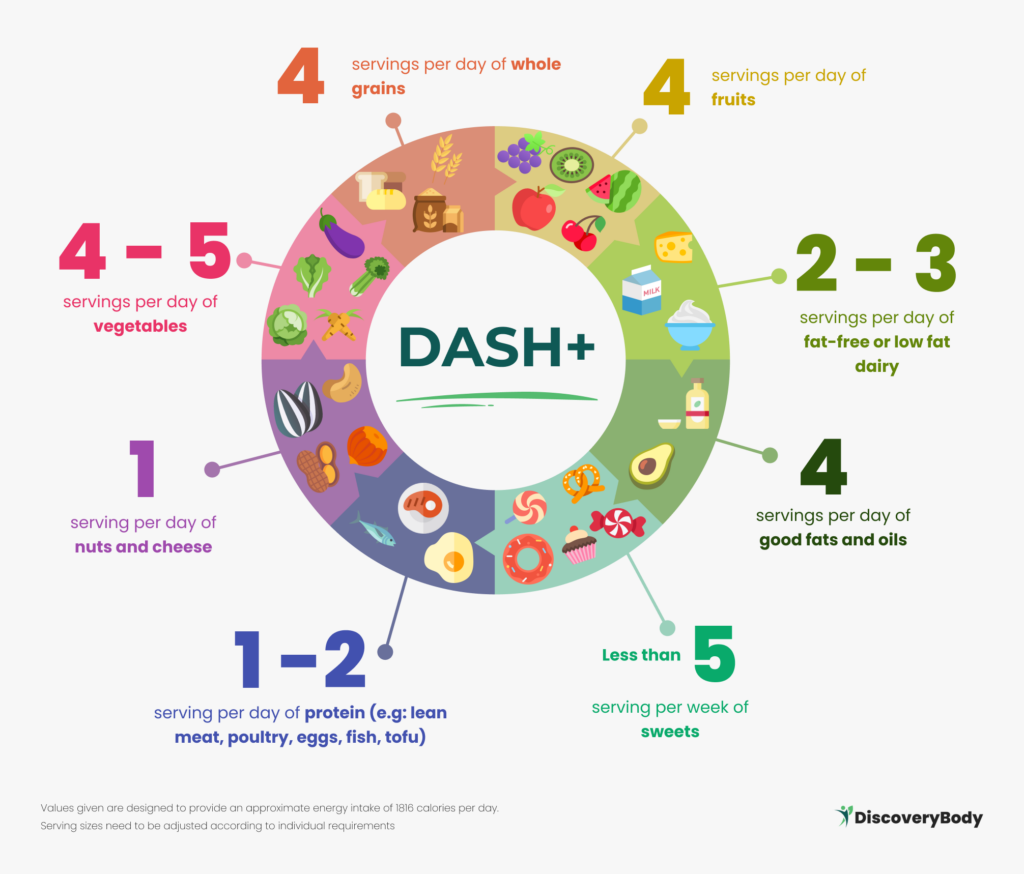Medically Accredited
Proven Strategies to Prevent Heart Health Issues
Heart disease is a serious condition that affects millions of people worldwide. According to the Centers for Disease Control and Prevention (CDC), it’s the leading cause of death in the United States, responsible for 1 in 5 deaths. But the good news is that there are strategies you can implement to lower your risk. By following a healthy lifestyle, you can take control of your heart health and protect yourself from these life-threatening conditions. In this guide, we will explore the different types of heart health issues, their symptoms, causes, risk factors, treatment options, and strategies to prevent them.
What Are Some of the Most Common Heart Health Issues?
Before diving into the strategies to prevent heart health issues, let’s briefly discuss heart disease examples and the factors that contribute to their development. Heart disease refers to a range of issues that affect the heart and blood vessels, including coronary artery disease, heart failure, and arrhythmias. These issues can lead to serious complications, like heart attacks and strokes.

Some common heart health issues include:
- Arrhythmia: This is an abnormal heart rhythm that can cause the heart to beat too fast or too slow. It can lead to palpitations (feeling your heart beating), dizziness, and shortness of breath.
- Atherosclerosis: This condition involves the buildup of plaque in the arteries, reducing blood supply to the heart and other parts of the body. Symptoms may include chest pain, fatigue, and muscle weakness.
- Cardiomyopathy: This disease causes the heart muscles to become enlarged, rigid, thick, or weak. It can lead to heart failure and other complications.
- Congenital heart defects: These are heart problems that occur during fetal development. They can range from mild to severe and may require medical intervention.
- Coronary artery disease (CAD): CAD is characterized by the buildup of plaque in the arteries that supply oxygen-rich blood to the heart. It can lead to chest pain (angina), heart attacks, and other serious complications.
- Heart infections: Infections such as endocarditis and myocarditis can affect the heart and its valves, leading to inflammation and damage.
What are the Symptoms of Heart Health Issues?
The symptoms of heart disease can vary depending on the specific type of condition. Here are the symptoms for each of the heart health issues mentioned above.
Arrhythmia
- Irregular heartbeat
- Palpitations
- Dizziness or lightheadedness
- Shortness of breath
Atherosclerosis
- Chest pain
- Fatigue
- Muscle weakness
- Shortness of breath
Congenital heart defects
- Cyanosis (bluish skin color)
- Rapid breathing
- Poor feeding in infants
- Fatigue and shortness of breath in adults
Coronary artery disease (CAD)
- Chest pain
- Shortness of breath
- Fatigue
- Heart attack symptoms (chest pain, shortness of breath, nausea, etc.)
It’s important to note, though, that women may experience different symptoms when experiencing a heart attack compared to men. Women are more likely to have symptoms such as back or jaw pain, shortness of breath, or nausea and vomiting. The figure below shows the comparison of heart attack symptoms present in men and women.

Cardiomyopathy
- Fatigue
- Shortness of breath
- Swelling in the legs, ankles, and feet
- Irregular heartbeats
Heart infections
- Fever
- Fatigue
- Chest pain
- Shortness of breath
If you experience any of these symptoms or suspect you may have heart disease, it’s important to seek medical attention for a proper diagnosis and treatment.
What are the Causes of Heart Health Issues?
Same with the symptoms; heart disease can have various causes depending on the specific type of condition. Here are some causes associated with the heart health issues mentioned in this guide.
Arrhythmia causes
- Diabetes
- Coronary artery disease (CAD)
- Heart defects
- High blood pressure (hypertension)
- Certain medications
Congenital heart defects causes
- Genetic factors
- Maternal drug or alcohol abuse during pregnancy
- Infections during pregnancy
- Poorly controlled diabetes during pregnancy
Cardiomyopathy causes
- Genetic factors
- High blood pressure (hypertension)
- Coronary artery disease (CAD)
- Infections
- Alcohol abuse
Heart infection causes
- Bacterial, viral, or parasitic infections
- Uncontrolled infections in the body
What are the Risk Factors for Heart Health Issues?
Several risk factors can increase your chances of developing heart health issues, some of which are beyond your control. By taking proactive steps and addressing these risk factors below, you can significantly reduce your chances of developing heart disease.
Controllable Risk Factors:
- Diabetes: High blood glucose levels can damage blood vessels and increase the risk of heart disease.
- High blood pressure: Elevated blood pressure puts stress on the heart and blood vessels, increasing the risk of heart disease.
- High cholesterol levels: High levels of LDL (bad) cholesterol and low levels of HDL (good) cholesterol can contribute to the development of plaque in the arteries.
- Smoking: Smoking damages the blood vessels, reduces oxygen supply, and increases the risk of heart disease.
- Obesity: Being overweight or obese puts extra strain on the heart and increases your chances of developing heart disease.
- Sedentary lifestyle: Lack of physical activity weakens the heart and cardiovascular system, increasing the risk of heart disease.
Uncontrollable Risk Factors:
- Family history: Having a close relative with heart disease increases your chance of developing the condition.
- Age: The risk of heart disease increases with age, particularly for individuals over 75.
- Gender: Men are generally at a higher risk of heart disease compared to premenopausal women. However, women’s risk increases after menopause.
- Ethnicity: Certain ethnic groups, such as African Americans, have a higher risk of heart disease. The statistics are shown below.

source: theheartfoundation.org
Although the death rate for heart disease has declined gradually for all ethnicities in the US over the years, the death rate for African Americans has remained 20% higher, and they even develop the condition at a younger age compared to their Caucasian counterparts.
The chart above shows that nearly 48% of African American women and 44% of African American men have some form of heart disease. It’s important to note that the leading factors that increase the risk of heart disease among them are high blood pressure, obesity and diabetes.
What are the Treatments for Heart Health Issues?

Treatment for heart health issues varies depending on the type and severity of the condition. The goal of treatment is to relieve symptoms, improve heart health, and prevent complications. Aside from the lifestyle changes that will be discussed in the next section of this guide, here are some other ways to treat heart disease.
Medications
Medications may be prescribed to manage symptoms, reduce the risk of complications, and improve heart health. Common medications used for heart disease include:
- Beta-blockers: These medications help reduce blood pressure and heart rate, relieving strain on the heart.
- Blood thinners: These medications reduce the risk of blood clots, which can cause heart attacks or strokes.
- ACE inhibitors: These medications relax blood vessels, lowering blood pressure and improving blood flow.
- Statins: These medications help lower cholesterol levels, reducing the risk of plaque buildup in the arteries.
Medical procedures
In some cases, medical procedures may be necessary to treat heart disease. These procedures may include:
- Angioplasty and stenting: These procedures involve opening blocked or narrowed arteries and restoring blood flow using a balloon-like device and a stent.
- Coronary artery bypass grafting (CABG): This surgical procedure bypasses blocked arteries by using blood vessels from other parts of the body to create alternative routes for blood flow.
- Implantable devices: Devices such as pacemakers or implantable cardioverter-defibrillators (ICDs) may be recommended to regulate heart rhythm or prevent sudden cardiac arrest.
Cardiac Rehabilitations
Cardiac rehabilitation programs provide supervised exercise, education, and support to individuals with heart health issues. These programs help improve cardiovascular fitness and manage risk factors. Additionally, these can be tailored to address your specific needs and goals.
What are the Strategies to Prevent Heart Health Issues?
Your lifestyle is your best defense against heart health issues. According to studies, a healthy lifestyle can help prevent over 80% of coronary artery disease, 50% of ischemic strokes, 80% of sudden cardiac deaths, and 72% of heart disease-related deaths.
Following these 8 key lifestyle steps below can decrease your chances of developing heart health issues.
Don’t Smoke
One of the most important steps you can take for the sake of your heart is to quit smoking. The chemicals present in tobacco can damage the heart and blood vessels, leading to an increased risk of heart disease. Even if you’re not a smoker, it’s important to avoid secondhand smoke as well.
Cigarette smoke lowers the oxygen in your blood, causing your heart to work harder to supply enough oxygen to your body and brain. The good news is that when you quit smoking, your risk of heart disease starts to decrease almost immediately. After a year without cigarettes, your risk drops to about half that of a smoker. No matter how long or how much you smoke, quitting will have immediate and long-term benefits for your heart health.
Regular Physical Activity
Regular physical activity is an excellent way to lower your risk of heart disease. Engaging in physical activity helps control your weight and reduces the chances of developing conditions that strain your heart, such as high blood pressure, high cholesterol, and type 2 diabetes.
It is recommended to aim for at least 150 minutes per week of accumulated moderate-intensity physical activity or 75 minutes per week of vigorous-intensity physical activity. This can include activities like brisk walking, cycling, or swimming.
Additionally, incorporating strength-training exercises into your routine can further boost your heart health. Even shorter bouts of activity like gardening, housekeeping, or walking the dog can offer significant benefits, so don’t get discouraged if you can’t meet the recommended guidelines right away. Every little bit of movement counts.
Follow a Heart-Healthy Diet
Adopting a heart-healthy diet is crucial for preventing heart disease. This diet plan includes:
- Vegetables and fruits: Incorporate a variety of fruits and vegetables into your meals. They are rich in essential nutrients, fiber, and antioxidants that promote heart health.
- Beans or other legumes: Legumes are excellent sources of protein, fiber, and minerals. They can be included in soups, salads, or served as a main dish.
- Lean meats and fish: Opt for lean cuts of meat and include fish rich in omega-3 fatty acids, such as salmon and trout, which have been shown to benefit heart health.
- Low-fat or fat-free dairy foods: Choose low-fat or fat-free options for milk, yogurt, and cheese to reduce saturated fat intake.
- Whole grains: Replace refined grains with whole grains like brown rice, whole wheat bread, and oats. Whole grains are high in fiber, which helps lower cholesterol levels.
- Healthy fats: Include sources of healthy fats, such as olive oil, avocados, and nuts, in your diet. These fats can help improve cholesterol levels and reduce inflammation.
- Limit sodium: Reduce your intake of salt and high-sodium foods, as excessive sodium can contribute to high blood pressure.
- Limit sugar: Minimize your consumption of sugary beverages, desserts, and processed foods that are high in added sugars.
- Limit saturated and trans fats: Reduce your intake of saturated fats found in red meat, full-fat dairy products, and tropical oils like palm and coconut oil. Avoid trans fats, which are commonly found in processed and fried foods.
Two popular heart-healthy diet plans that you can check out are the Dietary Approaches to Stop Hypertension (DASH) diet and the Mediterranean diet. These diets emphasize consuming nutrient-rich foods while limiting sodium, sugar, highly refined carbohydrates, processed meats, saturated fats, and trans fats. Shown below is an illustration of what food and the recommended servings for each on a daily or weekly basis if you decide to follow DASH.

Maintain a Healthy Weight
Maintaining a healthy weight is crucial for preventing heart disease. Being overweight increases your risk of developing conditions like high blood pressure, high cholesterol, and type 2 diabetes, all of which can contribute to heart health issues.
A Body Mass Index (BMI) of 25 or higher is considered overweight, and it is generally linked with higher cholesterol, blood pressure, and an increased risk of heart disease and stroke. Additionally, measuring your waist circumference can provide insights into the amount of belly fat you have, which is also a risk factor for heart disease.
Even a small weight loss can have significant benefits for your heart health. Losing just 3% to 5% of your weight can lower triglyceride levels, blood sugar levels, and the risk of developing type 2 diabetes. Further weight loss can help reduce blood pressure and improve blood cholesterol levels.
Get a Good Night’s Sleep
Getting a good sleep is important for maintaining a healthy heart. Inadequate sleep has been linked to an increased risk of obesity, high blood pressure, heart attacks, diabetes, and depression. Most adults require at least seven hours of sleep each night, while children usually need more.
Establishing a regular sleep schedule can help ensure you get sufficient rest. Try to go to bed and wake up at the same time each day. Create a sleep-friendly environment in your bedroom by keeping it dark, quiet, and at a comfortable temperature.
Manage Stress Effectively
Chronic stress can contribute to higher blood pressure and other risk factors for heart health issues. Additionally, individuals under stress may engage in unhealthy coping mechanisms such as overeating, excessive alcohol consumption, and smoking. Therefore, it is essential to find healthy ways to manage stress and improve your overall well-being.
Various stress management techniques can positively impact heart health. Regular physical activity, relaxation exercises, mindfulness, yoga, and meditation are effective strategies for reducing stress levels. If stress becomes overwhelming, seeking professional help from a healthcare provider or therapist can be beneficial.
Additionally, if you suspect you may be experiencing symptoms of anxiety or depression, it is crucial to get proper treatment. These mental health conditions are linked to an increased risk of heart disease, including higher blood pressure and reduced blood flow to the heart.
Regular Health Screenings for Cholesterol, Blood Pressure, and Diabetes
Screening tests are essential for identifying potential heart disease risk factors and taking appropriate action. High blood pressure and high cholesterol can damage the heart and blood vessels, but without regular screenings, you may not be aware of these conditions.
Blood pressure screenings usually begin in childhood, with regular measurements recommended at least once every two years. As you age, the frequency of screenings may increase, especially if you have risk factors for high blood pressure. Cholesterol screenings usually start between the ages of 9 and 11, with subsequent tests recommended every five years. The frequency of cholesterol screenings may vary based on age and other risk factors.
Screening for type 2 diabetes is also crucial. Diabetes is a significant risk factor for heart disease, and early detection is essential for managing the condition effectively. Regular blood sugar level tests are recommended starting at age 45 or earlier if you have risk factors like being overweight or having a family history of diabetes.
If you have existing conditions such as high cholesterol, high blood pressure, or diabetes, it is crucial to work closely with your healthcare provider. Your healthcare provider may prescribe medications and recommend lifestyle changes to help manage these conditions effectively.
Prevent Infections
Certain infections can contribute to heart problems, so taking steps to prevent infections is vital for protecting your heart health. For example, gum disease has been linked to an increased risk of heart and blood vessel diseases. So, maintaining good oral hygiene by brushing and flossing daily and visiting your dentist regularly is important.
Other illnesses caused by infections can worsen existing heart health issues. That’s why getting vaccinated is important, as vaccines play a crucial role in preventing infectious diseases and protecting your heart. Make sure you get recommended vaccines such as the yearly flu vaccine, the COVID-19 vaccine, the pneumococcal vaccine, and the Tdap vaccine. Also, consult with your healthcare provider to determine if you need any additional vaccines based on your needs.
Frequently Asked Questions
What’s the connection between heart health issues and hypertension?
High blood pressure (hypertension) makes the heart work harder to circulate blood, leading to thickened heart muscle and narrowed arteries. This can reduce blood flow and oxygen supply to the body’s organs and tissues, increasing the risk of heart health issues.
Is there a cure for heart health issues?
Heart disease cannot be cured or reversed. However, with appropriate medications, medical procedures, and lifestyle modifications, symptoms can be relieved, and the progression of the disease can be managed effectively.
My heart rate is abnormally slow; is it a sign of a heart health issue?
An abnormally slow heart rate is not always a cause for concern. In athletes or young individuals, it can be a normal finding. However, in some instances, it may be a sign of underlying heart problems and requires medical evaluation.
Why are beta-blockers used for heart health issues?
Beta-blockers are commonly prescribed for heart disease to slow down the heart rate, reduce blood pressure, and improve heart function. They block the effects of adrenaline on the heart, helping to relieve strain and reduce symptoms.
Take Control of Your Heart Health
Heart disease is a potentially life-threatening condition, so you need to be proactive. By understanding the risk and the symptoms associated with this condition and by adopting a heart-healthy lifestyle, you can reduce your risk. Strategies such as quitting smoking, becoming physically active, following a heart-healthy diet, maintaining a healthy weight, getting good sleep, managing stress, having regular health screenings, and getting vaccines to prevent infections can all contribute to a healthier heart.
Remember, prevention is a lifelong commitment. By implementing these strategies and making them a part of your daily routine, you can protect your heart.
Disclaimer: Please note that Discoverybody has taken great care to ensure that all information provided is comprehensive and up-to-date. However, you should not use this article as a substitute for the expertise that a licensed healthcare professional can offer. It’s always a good idea to talk to your doctor before taking any medication.
16 sources expanded:
- Heart disease facts. Centers for Disease Control and Prevention (2023).
https://www.cdc.gov/heartdisease/facts.htm - Know your risk for heart disease. Centers for Disease Control and Prevention (2023).
https://www.cdc.gov/heartdisease/risk_factors.htm - Heart Disease Prevalence. Centers for Disease Control and Prevention (2023). https://www.cdc.gov/nchs/hus/topics/heart-disease-prevalence.htm
- 6 things every woman should know about heart health. American Heart Association (2019). https://www.heart.org/en/news/2019/10/04/6-things-every-woman-should-know-about-heart-health
- Jolly, S., Vittinghoff, E., Chattopadhyay, A., & Bibbins-Domingo, K. (2010). higher cardiovascular disease prevalence and mortality among younger blacks compared to whites. the american journal of Medicine, 123(9), 811-818. https://www.amjmed.com/article/S0002-9343(10)00391-8/fulltext
- Mensah, G. (2018). cardiovascular diseases in african americans: fostering community partnerships to stem the tide. american journal of kidney Diseases, 72(5), S37-S42. https://www.ajkd.org/article/S0272-6386(18)30832-1/fulltext
- Wickman, B., Enkhmaa, B., Ridberg, R., Romero, E., Cadeiras, M., Meyers, F., … & Steinberg, F. (2021). Dietary management of heart failure: dash diet and precision nutrition perspectives. Nutrients, 13(12), 4424. https://www.mdpi.com/2072-6643/13/12/4424
- Gopinathannair, R., Etheridge, S., Marchlinski, F., Spinale, F., Lakkireddy, D., & Olshansky, B. (2015). arrhythmia-induced cardiomyopathies. Journal of the American College of Cardiology, 66(15), 1714-1728. https://www.sciencedirect.com/science/article/pii/S0735109715049980?via%3Dihub
- Arnett, D., Khera, A., & Blumenthal, R. (2019). 2019 acc/aha guideline on the primary prevention of cardiovascular disease: part 1, lifestyle and behavioral factors. https://www.ahajournals.org/doi/10.1161/CIR.0000000000000678
- What Is Atherosclerosis? National Heart, Lung, and Blood Institute. (2022). https://www.nhlbi.nih.gov/health/atherosclerosis
- Ciarambino, T., Menna, G., G, S., & Giordano, M. (2021). cardiomyopathies: an overview. International Journal of Molecular Sciences, 22(14), 7722. https://www.mdpi.com/1422-0067/22/14/7722
- Houyel, L. and Meilhac, S. (2021). heart development and congenital structural heart defects. Annual Review of Genomics and Human Genetics, 22(1), 257-284. https://www.annualreviews.org/doi/10.1146/annurev-genom-083118-015012
- What Is Coronary Heart Disease? National Heart, Lung, and Blood Institute. (2023) https://www.nhlbi.nih.gov/health/coronary-heart-disease
- Diabetes and your heart. Centers for Disease Control and Prevention (2022).
https://www.cdc.gov/diabetes/library/features/diabetes-and-heart.html - Kalapura, T. and Ventura, H. (2003). beta‐blocker therapy and severe heart failure: myth or reality?. Congestive heart Failure, 9(4), 197-202. https://onlinelibrary.wiley.com/doi/10.1111/j.1527-5299.2003.01467.x
- Taylor, A., Johnson, D., & Kazemi, H. (1992). Environmental tobacco smoke and cardiovascular disease. a position paper from the council on cardiopulmonary and critical care, american heart association.. Circulation, 86(2), 699-702. https://www.ahajournals.org/doi/10.1161/01.CIR.86.2.699




